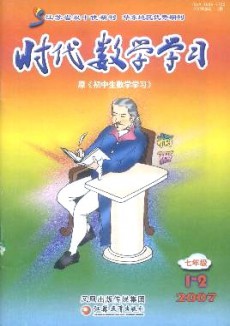七年级英语下册教案大全11篇
时间:2022-06-10 00:58:28
七年级英语下册教案篇(1)
Unit 4 Don't eat in class.Section A (1a-2d)一、教学目标:1. 语言知识目标:1) 能掌握以下单词:rules, arrive, late, hall, dinning hall, listen, listen to, fight, sorry2) 能掌握以下句型:① Don't eat in class.② You must be on time.③ Eat in the dining hall.2. 学会用英语表达一些标志的含义。3. 熟练使用目标语言谈论对某些规章制度(校规、家规等)的看法二、教学重难点1. 教学重点:1) 肯定祈使句是省略掉主语的原形动词开头;2) 否定祈使句则是在肯定祈使句前加上“don’t”。3) 情态动词must及have to在用法上的区别。2. 教学难点:掌握祈使句的用法,并能听懂、会说一些简单的祈使句。三、教学过程Ⅰ. Warming-up and revision用祈使句请学生们完成一系列动作:Please stand up/ sit down. Close the door, please. Look at me and listen to me.Don’t open your books. Don’t talk. Let’s begin our class.Ⅱ. 1aT: Now, Look at the picture on your textbook. Each of the students is breaking one of these rules. Please finish 1a.Ⅳ. ListeningNow let’s listen! What rules are these students breaking? Write the numbers after names?Ⅴ. Pair workRead the dialogue in 1cand work in pairs.Ⅵ. Listening1. First, let's read the sentences in 2a together. Now, let's listen to the recording. Check the activities Alan and Cindy talk about.2. Work on 2b: Listen to the recording again. Can Alan and Cindy do these activities? Circle can or can't above.Ⅶ. Pair work1. Suppose you are Alan and your partner is Cindy. Talk about the rules in 2a.2. Let some students come to the front and act out the conversations.Ⅷ. Role-playRead the conversation and find some rules in this school. Ss read the conversations and find the answers to this question.( Don't be late for school. Don't bring music players to school. You always have to wear the school uniform. You have to be quiet in the library. )Homework:1. Remember the new words and expressions.2. 完成下列句型转换试题1)I can play computer games on weekends.(一般疑问句)_________________________________? Yes, ____________.2) He has to wear uniform.(变否定句) He _____ _____ _____ wear uniform.3) I have to wear sneakers for gym class.(一般疑问句)_____ you ____ ____ wear sneakers for gym class? Yes, I ____.4) They have to wash clothes.(提问) ____ do they have ____ ____?5) You can’t go out on school nights.(换一种表达) _______ go out on school nights.6) Don’t talk in class.(同上) No _________.Section A (Grammar Focus-3c)教学重难点1. 教学重点:1) 继续学习使用目标语言谈论对某些规章制度(校规、家规等)的看法2) 通过不同方式的练习方式来学会用英语表达一些标志的含义。3) 运用祈使句来表达一些规章和制度。2. 教学难点:1) 总结用祈使句、情态动词can、must及have to来表达各种规章制度;2) 能用所学的知识来制定一些简单的规章制度。教学过程Ⅰ. Warming- up and revisionⅡ. Grammar Focus.1. 学生阅读Grammar Focus中的句子,然后做填空练习。① 不要在楼道里跑。_______________________② 不要打架。 ____________________③ 有什么规则? ___________________④ 我们必须按时上课。 ____________________⑤ 我们可以在教室里吃东西吗?____________________⑥ 不能。但我们可以在餐厅里吃东西。___________________⑦ 我们可以在教室里带帽子吗?____________________2. Ss finish off the sentences and check the answers by themselves.Ⅲ. WritingLook at 3a. Do you know the meaning of these pictures? Can you write the rules for the school library?Ss discuss the pictures and make some rules. Let some Ss read their rules aloud. Check the answers with the class.(Don't listen to music in the library. Don't eat or drink in the library. Don't take photos in the library. )Ⅳ. PracticeWork on 3b: Use the words to make questions about the rules. Then write answers according to your school. For example: Be quiet? (she/have to/ in the library) Does she have to be quiet in the library? Yes, she does.2. 注意: have to虽是情态动词,但其在句子中与谓语动词共同构成句子时,其一般疑问句应用助动词do或does来帮助构成;而情态动词can则直接提前构成一般疑问句式。3. Ss work by themselves and try to write the sentences on the workbook.4. Ss work in pairs. Ask and answer the sentences.Ⅴ. GameSs work in groups and discuss what rules are in their school. Write down their rules on the work. Let some Ss read their rules aloud. See whose school is the coolest?Ⅵ. Exercises1. If time is enough, do some more exercises on the screen.Homework1. Read the sentences in Grammar Focus.2. Make some rules at home.板书设计Section B 1a-2c教学重难点1. 能掌握以下单词:out, go out, dish, do the dishes, night, before, dirty, kitchen, more, noisy, relax, read, terrible, feel, strict, be strict with, remember, follow, follow the rules, luck2. 能掌握以下句型:① Don't leave the dirty dishes in the kitchen.② I can't relax either.③ I must read a book before I can watch TV.④ I have to help mom make breakfast.3. 理解must, have to/ can/can't的用法三、教学过程Ⅰ. Warming- up and revisionCheck the homework. Let some Ss read their home rules.Ⅱ. Presentation1. Show some pictures on the big screen and let Ss learn the new words and expressions.2. 学生看着1a部分的图片学生朗读1部分的“rules”,并将图片a~h的序号填写在1b这些规则前的方框中。Check the answers with the class.Ⅲ. Listening1. Tell Ss they'll listen to the recording about Dave's house rules. Listen and put an× for things Dave can't do and a √for things he has to do.2. Play the recording for the Ss to listen and check.Ⅳ. ListeningNow let's work on 1c. Now first, let's read the phrases aloud together. Explain the meaning of the phrases if necessary.Play the recording three times for the Ss to listen and write the phrases in the chart in 1b.Check the answers:Ⅴ. Group workDivide the Ss into groups to talk about Dave's home rules. Make a list of Dave's house rules. Ⅵ. Reading1. Fast reading: Read the letter and find the answer to this question:What does Molly feel about the rules?Ss read the letter and find the answer to this question. (she feels terrible.)2. Careful reading: Read the letter again and underline the rules for Molly. Check the answers with the class. (Let some Ss read their answers aloud. Let other Ss add some rules. )3. Careful reading1) Read Dr. Know's letter and answer this question: What does she think of the school and home rules? Let one student read out his/her answer.(She thinks parents and schools are sometimes strict, but they make rules to help us. We have to follow them. )Ⅶ. Reading1. Read the letter again and complete the sentences with have to/ must, can or can't.2. 提示: have to与must的用法:1)must表示一种主观的需要,而have to表示一种客观的需要,意思是“不得不”。如: I have to attend an important meeting this afternoon.今天下午我不得不参加一个重要的会议。Mother is out, so I have to look after the shop.妈妈不在家,因此我不得不照看商店。2)have to的否定形式是don’t have to, 相当于needn’t。如:They don’t have to buy a computer at present.他们目前没有必要买电脑。Homework1. Remember the new words and expressions in this period.2. Ask Ss write down Molly's rules at home and at school.
七年级英语下册教案篇(2)
Ⅰ.听力部分(共25分)一.听句选图。请听句子,选出相应的图画。(5分) 二.请听句子,选答语(5分)6.( )A. At school. B. In the school C. Yes, I can7.( )A. No, I’m not B. walking C. May 1st8.( )A. Friday B. English C. Comedy 9.( ) A. In Tokyo B. The music club C. July10.( )A. Yes, I do B. At 6:00 C. Because it’s interesting三.对话理解。请听对话及问题,选出答语。(5分)11.( ) A. It' s raining. B. It' s windy. C. It' s snowing.12.( ) A. A reporter. B. An actor. C. A waiter.13.( ) A. In a police station. B. In a restaurant. C. In a mall.14.( ) A. Yes, Tony does. B. Yes, they do. C. No, they don’t15.( ) A. All over the world. B. In China. C. In other countries all over四.短文理解。请听短文,选择正确答案。(5分)( ) 16.Today is .A. Sunday morning B. Saturday morning C. Sunday afternoon( ) 17.How' s the weather there?A. It's windy. B. It' s cloudy. C. It’s s sunny.( ) 18.There are many people from .A. England and Canada B. America and Japan C. Canada and Australia( )19.The driver is .A. an American B. a Chinese C. a man( )20.People in the bus.A. are reading newspaper B. want to play basketball C. are listening to a man五.听短文,完成下列表格。(5分)photos People What doing?the first photo I 21 the second photo 22 are swimming at the poolthe next photo my family 23 the last photo I’m with 24 25 ( ) 21.A.I’m playing soccer ball B. I’m playing basketballC. She’s playing soccer ball D. He’s playing basketball( ) 22.A.I’m with my brother B. I’m with my mother C. My father and I D. My brother and my sister( ) 23. A. Are eating dinner B. Are eating lunch C. Are eating breakfast D. Are eating apples ( ) 24. A. Mary B. Gina C. Tom D. Bill( ) 25. A. She’s doing homework B. He’s playing volleyball C. She’s dancing D. He’s singing Ⅱ、笔试部分(共95分)X kb1 .com一.翻译短语。(10分) 1.in winter ______________ 2.in this heat 3. a photo of my family 4.during the day 5.a group of people 6. 散步______________7.沙滩排球______________ 8.在度假______ 9.在对面______________ 10.玩得高兴_____________ 二.用所给词的适当形式填空。(10分)1.It’s a beautiful, ______ day. (sun)2. This is the _______of the story. (begin)3. They can _______the guitar well. (play)4. How many _____can you see in the room? (man)5. Mary enjoys _______football games very much. (watch)6. Thanks for _____me so much help. (give)7. Lin Tao wants ________an actor when he grows up. (be)8. Nancy likes _____to music. (listen)9. Can you and your brother________ ? (swim)10. Look! The children ______happily over there. (play)三.写出下列句子的同义句(5分)1. How' s the weather today? the weather today?2.The pay phone is in the neighborhood. The pay phone is . 3. What's her job?=What is she?What she ?4. My aunt is from Canada.My aunt Canada.5.Look! They are taking a photo. Look! They are taking .四、句型转换(10分)1. There is some money for her.(改为否定句) money for her?2. I am doing my homework.(对划线部分提问) you ?3. They are some young women. (改为单数形式) a young .4. There is a supermarket across from the park. ( 改为一般问句) ________ __________ a supermarket across from the park?5. I like dolphins. Because they are very intelligent. ( 划线部分提问) _________ _________ you like dolphins?6. Her English teacher is from the USA. ( 同上 ) ___________ is her English teacher _____________?7. She often plays soccer after school. (用now改写句子)She __________ ____________ soccer now.8. It’s humid today. (就划线部分提问) ____________ ___________ __________________________today?9. It’s great. (就划线部分提问) ? 10. It’s nine ten. (对画线部分提问)_________ the time?五.选择填空(20)( )1.Everyone ______him, because he is friendly.A. like B. likes C. to like D. liking( ) 2. —— What __________ he do? —— He __________ an actor. A. is, is B. does, does C. does, is D. is, does( ) 3. —— What time does she get up? —— She ___________ up at 6:10 am. A. is getting B. gets C. to get D. get( ) 4. ——What language does the woman speak?——She speaks . She' s from Australia.A. Japanese B. Chinese C. French D. English( ) 5.—— What are you doing? —— I _____ a letter to my pen pal. A. write B. am writing C. writes D. am write( ) 6. —— _______ you watching TV? —— Yes, I _____________. A. Do, do B. Can, can C. Are, am D. Are, do( ) 7. Look! Dave _______________ on the phone. A. talks B. are talking C. talk D. is talking( ) 8.—— __ Mary cleaning her room? ——No, she is __ . A. Does, reads B. Can, read C. Is, reading D. Does, reading( ) 9. ——Let’s _ to the movies now. ――That great. A. going, sounding B. go, sounds C. go, sound D. goes, sounds( ) 10.—— does your aunt work? ——In a restaurant.A. What B. How C. Where D. Which ( ) 11.Where your pen pals ? A. are, from B. do, from C. do, come D. is , from( ) 12.—— is the weather in Beijing now? ——It’s ____________. A. What, winding B. How, windy C. When, winds D. Why, windy( ) 13. ——What’s the weather _________ in Beijing? ——It’s terrible in summer, too cold and humid. A. likes B. is liking C. like D. liking( ) 14. Thank you for _____________ CCTV’s Around The World show. A. join B. is joining C. to join D. joining( ) 15.—— __________ it going? —— Great! A. What’s B. How’s C. Why is D. Where’s( ) 16. People are really ______________ on the beach in summer (夏季). A. relaxed B. relaxing C. relax D. to relax( )17. Look! The man ________ under the tree is enjoying the cool.A. lie B. lying C. is lying D. lies( ) 18.——Who are you _____? —— My mother. A. wait B. waiting C. waiting for D. wait for( ) 19.——Let’s go to see the action movies. ——_________.A. Yes, we do B. No, we don’t C. That sounds exciting D. No, thanks.( ) 20.Tony is busy _____his homework.A. doing B. do C. to do D. does六.完形填空:(10分)My friend Tony is an American 1 He is ten years old. He lives 2 his family in China now. There are 3 people in his family; his mother Mrs Green, his father Mr. Green and his little sister Amy. He has a white cat. 4 name is Betty. Look Amy is playing 5 Betty. His father, Mr. Green, is watc¬hing TV. His mother is doing housework. What about Tony? He is doing 6 Chinese homework.. He can't 7 Chinese well, but he likes Chinese very much. Tony's 8 works in a TV station. His father works in a school as an 9 teacher. Tony and his sister 10 to the same school.( ) 1. A. girl B. boy C. cat D. dog( ) 2. A. on B. after C. with D. in( ) 3. A. two B. three C. four D. five( ) 4. A. His B. Her C. It's D. its ( ) 5. A. to B. with C. from D. at( ) 6. A. her B. it's C. a D. his( ) 7. A. say B. tell C. speak D. talk( ) 8. A. father B. mother C. sister D brother( ) 9. A. Chinese B. Japanese C. English D. Australian( ) 10. A. go B. goes C. going D. to go七.阅读理解:(30分) AIt' s Sunday morning. There are many people in the park, some boys are playing basketball. There are some girls under a big tree. They' re singing and dancing. What are those women doing? They are drinking tea. Look at the woman in a blue coat. Who' s she? She' s my mother. She is talking to Edward. Edward is her student. He is a good student. He studies hard . He' s good at all the subjects. And he' s friendly to all his teachers and his friends.( ) 1. The boys are ,A. singing B. playing basketball C. dancing D. drinking( ) 2. My mother is .A. a teacher B. an office C. a doctor D. a woman( ) 3. Edward is in .A. my home B. the classroom C. the zoo D. the park( ) 4. —— Who' s under a big tree? —— . A. Some people. B. Some women. C. Some girls. D. Some boys.( ) 5.—— What color is my mother' s coat? ——It's .A. blue B. white C. red D. yellowBBill is from Australia. He lives in Sydney. He can speak French and English, but he can' t speak Chi¬nese. He has a pen pal in the United States. Her name is Lisa and she lives in New York. Bill' s favorite sport is basketball and he can play the guitar. Lisa' s favorite sport is tennis. She can't play the guitar, but she can play the piano and sing very well.( ) 1.Bill is from .A. Australia B. France C. the United States D. the UK( ) 2. Lisa is an .A. Chinese B. American C. English D. Japanese( ) 3. What languages does Bill speak? A. Chinese B. French C. English D. B and C( ) 4. What is Bill' s favorite sport?A. tennis B. volleyball C. soccer D. basketball( ) 5. Which sentence is NOT right?A. Bill has a pen pal in the USA.B. Bill can play the piano and Lisa can play the guitar.C. Bill and Lisa like different sports.D. Lisa lives in New York.C.Bob has a good friend, Caesar. He is a brown dog. He is not very old. Bob gets him from Mr. Mason.One day Bob’s father, mother and Bob go to the Mason’s farm (农场) for lunch. After lunch, Mr. Mason says, “I’m going to a big city. So I can’t take him there. You can’t have a young dog in a big city.” “ Let me have him, ”Mr. Mason, “ he knows me well and we have no dog, ” Mr. Mason looks at Bob’s mother and father. “Please , Mother, let me have him,” says Bob. “Ask your father,” says she. “Please, Dad?” “Yes, you can have him.” “Thank you, dear dad. Thanks, Mr. Mason. Come here, Caesar.” “See! The dog is his now,” says Mr. Mason.( )1. What color is Caesar? It’s A. black B. yellow C. brown D. white( )2. How old is the dog? It’s A. very old B. not very old C. half a year D. one year and a half( )3. Mr. Mason works . A. in a school B. in a factory C. with Mr. Green D. on a farm( )4. Mr. Mason wants to . A. take the dog to a big city B. give Bob the dog C. leave (离开) home with the dog D. sell the dog( )5. Caesar is Bob’s A. friend B. brother C. doll D. name 八、书面表达。假如你是Mike,正在英国学习外语。你的朋友Lin Tao在学习英语的过程中遇到了一些困难,向你求助。请给他写一封信,介绍一下你学习英语的方法,并鼓励他不要放弃。 一、参考答案:听力材料一. 1. Look! The koala comes from Australia. 2. — Where' s your pen pal from? - He comes from New York.3. - What' s your brother doing? - He' s playing basketball.4. - How' s the weather in Canada now? - It' s snowing and cold.5. - What does your cousin want to be? -He wants to be a doctor.二. 6. Where do people play baseball ?7.Are you watching TV ?8.What kind of movies do you like ?9.What club does he want to join ?10. Why do you like P. E. ?三. 11. - The weather is going too bad then. - Yes, it' s raining again.Question: How' s the weather there?12. - Is your brother a student? - Yes. But he wants to be an actor.Question; What does he want to be?13. - Can you help me? I want to find a pay phone. - It' s over there, in a mall.Question; Where is the pay phone?14. -1 like animals very much.- Me,too. Let's go to the zoo this afternoon, OK?Question; Do they want to go to the library?15. - Do you know the animals?- They are pandas. They live only in China.Question; Where do pandas live?四.短文材料:It' s a fine Sunday morning. It' s sunny and warm. Ann and her mother are in a big bus. There are many people in it. Some of them come from America, and some come from England and Canada. They are all their friends. They are going to the supermarket.There are two Chinese in the bus. One is a woman. She is driving the bus. The other is a young man. He speaks good English. He is now talking a-bout the supermarket. The other people are all listen¬ing to him. They want to buy some things. They are very happy.五.Dear Maria,Thanks for your letter and the photos. Here are some of my photos. In the first photo, I' m playing basketball at school. In the second photo, I' m with my brother. We are swimming at the pool. In the next photo, you can see my family at home. We' re eating dinner. In the last photo I' m with my sister Gina. She' s doing homework I' m watching TV.Ⅰ 1――5 CBAAB 6—10 AACBC 11—15 ABCCB 16—20 BCABC21—22 BAABAⅡ、笔试题:一至四题(略) 五. 1—5 BCBDB 6—10 C DCBC 11—15 D BCDB16—20 A CDCA 21—25 CBCCC六.完形填空: 1――5 BCCDB 6- --10 DCBCA 七.阅读理解:A. BADCA B. ABDDB C. CBDBA 八.书面表达Dear Lin Tao,I was happy to read your letter. You asked me for some advice on learning English. At first, I also found it hard to remember so many words and phrases. Then I found that the best way to remember words was to learn their pronunciation. There are some useful rules in the pronunciation, and they can help me remember new words easily. I also had some grammar problems when I was in first grade. I tried to read more and practice more. Now it isn't very difficult for me to understand the sentences and passages. That's my secret of learning English. I hope it helps you. Please never give up!
七年级英语下册教案篇(3)
二、单项选择题(15分)( )21、He often plays________ basketball for________hour.A、/; an B、a;an C、a; a D、/; a( )22、—When you’re hungry, where can you get something to eat? —_______.A、In a pool B、In a restaurant C、In a garden D、In a library( )23、When I grow up, I want________ a football player.A、be B、to be C、am D、are( )24、It’s________ in Australia when it’s winter in China.A、cold B、hot C、winter D、snowing( )25、Look! Emma is_______ her bedroom. Her room is always_________.A、clean; clean B、clean; cleaning C、cleaning; clean D、cleaning; cleaning( )26、—Mr Black, can I play with Tom?—I’m sorry but he_________play with you now. He _________his homework.A、can; is doing B、can’t; is doingC、can’t; does D、can; does( )27、The apple________.A、taste good B、tastes wellC、tastes good D、taste well( )28、It’s very cold in Beijing now, ________?A、doesn’t it B、does it C、is it D、isn’t it( )29、What’s Jim doing over there? He’s_______ his friends.A、talking B、talking with C、talks D、talk( )30、People are really_______on the beach in summer.A、relaxed B、relaxing C、boring D、bored( )31、_______sleeps during the day but at night he gets up and eats food.A、A panda B、A dog C、A koala D、A giraffe( )32、It takes_______ ten minutes _______on footA、his; to get to school B、him; to get to schoolC、his; going to school D、him; going to school( )33、—Do you like to go to the movies with me?—Sure. __________A、Thank you. B、I’d love to. C、OK D、That’s right( )34、They often have lots of homework _______ after school.A. to do B. doing C. do D. does( )35、The teacher ______ me to _______ it in English.A. tells, say B. says, tell C. talks, say D. speaks, tell三、完形填空(10分,)Hello,boys and girls! Are you 36 this Sunday? If not, please 37 to visit the animals in our zoo.The monkeys 38 from Africa. They are very smart. The pandas from China are very cute and 39 shy. The giraffes are very tall. They’re from South Africa. 40 you come, maybe they are eating the leaves 41 the trees. We have a big 42 . It’s for the dolphins.Our dolphins can jump and “walk” on water. They can play 43 balls. The tigers and lions are scary. They are lazy. They often 44 20 hours a day. They’re dangerous. So don’t go near them. When you are watching the animals,please 45 give food to them.( ) 36. A. free B. busy C.friendly D. smart( ) 37. A.come B. go C. walk D. ride( ) 38. A.is B. comes C.are D.coming( ) 39. A.a kind of B.kinds of C. a kind D.kind of( ) 40. A. If B. Because C. But D. When( ) 41. A.in B. at C. for D. on( ) 42 A. zoo B. garden C. pool D. park( ) 43. A. to B. with C. in D. on( ) 44. A.sleep B. forget C. cut D. learn( ) 45. A.don’t B.not C.don’t do D. doesn’t do四、阅读理解(共20小题,每小题1分)AMrs. Brown's telephone number is 3464, and the number of the cinema in her town is 5463, so people often make a mistake and telephone her when they want the cinema.One evening the telephone bell rings and Mrs. Brown answers it. A tired man says, "At what time does your last film begin?""I'm sorry," says Mrs. Brown, "but you have wrong number. This is not the cinema. ""Oh, it began(开始) twenty minutes ago?" says the man. "I'm sorry about that. Goodbye! "Mrs. Brown is very surprised. So she tells her husband about it. He laughs and says, "The man's wife wants to go to the cinema, but he is feeling tired, so he telephones the cinema. His wife can hear him, but she can’t hear you. Now they will stay at home this evening, and the husband will be happy!根据短文判断正误:(T or F)( )46. Mrs. Brown knows a lot about the films, so people often telephone her.( )47. Mrs. Brown is surprised at the man.( )48. The man doesn't want to see a film because his wife is feeling tired.( )49. The man and his wife don't go to the cinema because the film has already begun (已开始).( )50. The man telephones just to cheat (骗) his wife.BWanted: An English TutorDo you like kids? Are you outgoing(开朗的)? Do you have over three years’ experience(经验) as an English teacher? Do you have free time on Saturday and Sunday? I need a woman teacher for my daughter. She is twelve and she is not good at English.You will:1. Teach from 3:00 to 6:00 p.m..2. Play with my daughter.3. Tell her stories in English.Our address: Beihai Road, Garden District.If you want to know more information(信息), please call Mrs. Yang at 82569876.根据上面的招聘广告,选择合适的选项( )51. Mrs. Yang wants ________ for her daughter.A. a babysitter(保姆) B. a good cookC. an English teacher D. a math tutor( )52. If you want to work for Mrs. Yang, you must teach the daughter for _______on weekends.A. three hours B. six hours C. a day D. A whole afternoon( )53. If you want to be the tutor, you need to ________.①be beautiful ②have over three years’ teaching experience③have time on weekends ④ be a womanA. ①② B. ②③ C. ①②③ D. ②③④( )54. If you want to know more about the job, what can you do?A. Write an email to Mrs Yang. B. Make a phone call to Mrs Yang.C. Go to Mrs Yang’s house. C. Write a letter to Mrs. Yang.( )55.What do you know about Mrs. Yang’s daughter?A. She is good at English. B. She is eleven years old.C. She is busy on the weekend. D.She loves English.CMy name is Sally White. I am a school girl. My school is far from my home. Every day it takes me a lot of time to get there. The road is not flat(平整), so I can not go to school by bike. I often get there by bus or on foot. It takes me about thirty minutes to get there by bus and about an hour on foot. I must get up early every morning. I have no time for breakfast at home. I often have something for breakfast on the way or on the bus. I don’t want to be late for school, so sometimes I run to school.( )56.Where does Sally live?A.In China. B.In Japan. C.In America. D.We don’t know.( )57.Her home is ________.A.new B.big C.far D.near( )58.It takes her ________ to get to school on foot.A.ten minutes B.thirty minutes C.an hour D.an hour and a half( )59.Where does Sally have breakfast?A.At home. B.On the way to school. C.In her school. D.In a restaurant.( )60.Is she often late for school?A.Yes, she is. B.No, she isn’t. C.Never. D.Sometimes.DMr. Knight is the manager (经理)of a hotel (旅馆). One weekend all of the hotels in the city are full because there is a large meeting. On Friday night, three men come into the hotel and ask for rooms. Mr. Knight says there are no rooms ready because of the meeting. The men are unhappy.Mr. Knight wants to help them. He remembers that Room 418, a very small room, is empty. He asks them if they can share (共用)a room. The three men say they will. Mr. Knight say the room will be thirty dollars: ten for each one. Each man gives him the money and then they go up to the room.Mr. Knight soon begins to feel sorry. "Thirty dollars is a lot to ask as a price for that small room." he thinks. He calls his assistant (助手)over and says, "Here is five dollars. Take it to the men in Room 418. I ask too much for their room. "The assistant takes the money. While he is on the way there, he starts to think, "How can three men divide (分配) five dollars? I'll give them each only one dollar and keep the two dollars for myself. The men will be happy to get something back. And Mr. Knight will never know. " So the assistant returns one dollar to each man.Each man has at first paid ten dollars. After the assistant returns them one dollar each, each has actually(实际上) paid nine. There are three men. The assistant keeps $2.Where is the missing dollar?( )61. The three men are not happy because ________________.A. there is a large meeting B. it is weekendC. there is only one small room D. they won't have a place to stay( )62. With the help of the manager, the three men _________.A. go to another hotelB. each get a small room for the nightC. stay together in a small roomD. get a small room Mr. Knight keeps for himself( )63 At first __________A. the three men pay the manager $27 B. the three men pay the manager $10C. the three men pay the manager $25 D. the three men pay the manager $30( )64. The assistant ___________.A.helps the men to divide the moneyB. keeps two dollars for himselfC.returns three to the men and two to the managerD. keeps three dollars for himself( )65. Where is the missing dollar ?A. There isn't any missing dollar. B. The assistant takes it.C. Mr. Knight takes it. D. The three men takes it.五、选词填空(10分)从方框内选择合适的单词,并用其正确的形式完成短文。Mrs. Dean is Mike’s aunt. She is a 66 . She works at No. 2 Middle School in Beijing. She has two 67 . Their names are Sandy and Peter. Sandy is a nice girl. Every morning she gets up 68 . First she helps Mrs. Dean 69 the house. Then she 70 books in her bedroom. Sometimes she gives food to her bird Polly. 71 that she goes to school with her brother Peter. When school is over, she usually waits for Peter at the school gate. 72 they go home together. On weekends, she sometimes goes 73 with her mother. And sometimes she goes swimming 74 Peter. Where’s she now? Look! She is 75 photos of Peter with her new camera. Hmm, the two children look very happy.六、补全对话(10分)A: Hello, This is Jim.B: Linda? Hi! 76.____________________________ ?A: I’m in Boston!B: Wow, 77._______________________________?A: It’s hot and sunny. How about the weather in Zhengzhou?B: It’s raining now. 78._____________________________?A: I’m doing my homework. I’m studying in a school of Boston.B: Really? How do you get to school?A:79._______________________________ . The school is not far from my house. And the bus ride is exciting.B: Oh,80._________________________________ ?A: I get up at 8:00. Our class begins at 9:00 in the morning.B: Sounds like you are having good time there. Happy every day!A: Thanks. Call you next time.B: OK. Bye.七、书面表达(15分)假设现在是星期日上午8:30,天气晴朗,暖洋洋的。Dave和他的同伴们正在公园玩的很开心,请根据下面提供的信息写一下他们的活动。60词左右。Name Activity PlaceDave 、Jim and Mike play soccer in a parkLinda play the violin under the treeJudie read a book near a treeTom and Ken swim in a pool
七年级英语下册教案篇(4)
随着我国教育改革的深入,中小学外语教材的开发层出不穷,广东、北京、广西统一使用的职业高中英语教材试用了四年,如何使它更好地适应职中教学的需要?作为一名教学第一线的教师,笔者对此有所体会。
英国学者Cunningsworth 在其著作《怎样选用你的教材》(Choosing Your Coursbook,1995)中设计了一系列教材评估表。这是迄今为止覆盖面较广且较为系统的教材评估方法,值得借鉴。本文根据其评估方法,对现行的《英语》(基础模块)教材进行了调查和研究。
一、目标和思路
1.教材的目标与学生的需求是否一致
本教材的目标是让学生了解英语国家文化,开拓国际视野,更好地完善与发展自我,并具有今后在生活和工作中运用英语的能力。为此,笔者对东莞市经济贸易学校的10、11、12级各100名学生进行了问卷调查,并与部分英语教师座谈。以下是对调查结果的归纳与分析,并对发现的问题作了初步的探讨。
(1)你在初中时英语水平如何?
根据表(一)的学生中考的成绩来看,学生的英语水平呈逐年每况愈下的趋势,英语较差,许多初中的英语知识还没掌握,高中的英语知识学习起来则更加困难。
(2)现在你在英语学习方面最大困难是什么?
从表(二)中可以看出:学生存在着各个方面学习英语的障碍。
(3)你课后学习英语的时间占课后时间的多少?
从表(三)中可以看出:学生主动学习英语的积极性不高,对英语不感兴趣。
(4)你学习英语的目的是什么?
从表(四)中可以看出应试教育还未转向素质教育,学生的学习目的还没具备学以致用的学习理念。
(5)你进入中学后,英语学习是进步了还是退步了?原因是什么?
从表(五)中可以看出教材在内容的编排上有欠缺,是造成学生学习兴趣下降的一个不可忽视的原因。
(6)你认为当前英语教材中缺少哪方面的知识?
表(六)
从表(六)中可以看出英语教材内容应适当丰富专业性知识。
(7)你认为课本和练习册的难度如何?
表(七)
从表(七)中可以看出英语教材难度偏大,学生容易产生厌学的情绪。
2.教材教学环境的适应性
本教材基本适应教学环境。以电子化、数字化、网络化、信息化为特征的知识经济已见端倪,以信息技术为先导的科技进步日新月异。中国走向世界,学生掌握英语这世界语言必不可少。本教材让学生在学习英语的同时,能适当提出与时俱进的话题。
3.教材是否能成为学生的学习资源
从表(四)可以看出:本教材只能成为学生的部分学习资源。部分中职学校为了满足学生英语考证的强烈要求,在高一、高二第一学期采用全国英语等级考试的辅导书作为教材;为了满足学生上大学的强烈要求,高三则采用成人高考的辅导丛书。另外各所中职学校都要应学生与社会的需求,根据不同专业开设了各种专业英语。
4.教材是否具有灵活性
本教材具有灵活性,含有相配套的学生用书、教师用书、练习册、电子教案、DVD,教师可以根据以上教材体系视学生实际情况,增减教学内容。尤其为教师提供了电子教案,图文并茂、绘声绘色的电子教案大大增添了教学的趣味性。
二、设计和组织
1.成套教材是由学生用书、教师用书、练习册、单元综合测试题四本分册组成的。
2.教材内容,如语法结构、语言功能、语言技能等的组织如下:各种语法结构在教材中交叉出现。笔者认为这不利于英语成绩一般的中职生系统地掌握各种语法结构。例如,学习间接引语时,如何把祈使句、陈述句、一般疑问句、特殊疑问句改为间接引语,应该集中在几个单元内学完。这样,有利于学生将各种大的语法结构纵向比较,利于掌握,避免将各种大的语法结构互相混淆。语言功能的组织也是一样,Shopping这个话题在第一册第十一单元和第二册第五单元都出现,笔者认为应该把这两个对话放在相邻的两个单元中,有利于学生全面掌握Shopping的各种用语,灵活掌握on sale, on special等具有相同语言功能的短语。在语言技能方面,教材几大板块“日常交际对话”着重训练听、说的技能;“课文”、“阅读理解”着重训练读的技能;“综合练习”和练习册的“写作”着重写的技能。各个板块又不同程度地训练其它技能。
3.教材主要在课文里体现语言的复杂性;在注释里体现语言的接受性;在练习中体现语言的实用性。
4.本教材能做到循序渐进,有充足的复习内容:第一册先复习国际音际、动词的四种形式、时态、冠词、连词、形容词/副词的同级、最高级、名词的单复数、介词。
在新授语法方面,先浅入深教授新语法:间接引语―被动语态―定语从句―情态动词―不定式―状语从句―非谓语―名词从句―主谓一致―倒装句―省略句。
5.本教材配套有多种练习,教材练习的设计充分考虑了学生的自主学习,教师可以选择性把部分练习留给学生自主学习。
6.教材排版方面,目录清楚标明本册书的各个单元和对话、课文、语法和复习内容。但由于是全英书写,不便于英语基础一般的中职生查询。
三、语言知识
1.教材针对每个年级学生的水平编入相应的语法知识,第一册编入间接引语、被动语态、定语从名;第二册编入情态动语、不定式;第三册编入状语从句、非谓语、名词从句;第四册编入主谓一致、倒装句、省略句。
2.教材中词汇的数量和种类充足。里面包含2300个左右的英语常用单词和不少于300个的习惯用语,其中熟练掌握1400个单词(含初中学过的词汇),为专业英语的学习打下扎实的基础。本教材的词汇和词组与高职考接轨,但对于大部分参加成人高考的学生来说,高三时还要学习其它词汇。
3.教材有国际音标,教学的内容符合学生的水平。
4.教材中有会话,写段落等语言知识运用活动。
5.学生的学习风格与教材中的语言教学风格还不太一致,学生的学习风格应尽量适应教材中的外语教学风格。
四、语言技能
1.教材包括听、说、读、写单项技能的教学,以及针对这些技能的综合性教学。这种教学符合教学大纲的标准和要求。
2.阅读教材难度较大,一半学生看不懂阅读材料,阅读难以进行下去。练习册每个单元一般都有一至两篇阅读理解课文,每个单元都有两篇课外阅读,阅读材料的数量充分。从表(七)中数据表明,高校的扩招以及高等教育的大众化,直接促进了普通高中的大发展,也给中等职业教育带来了冲击和挑战。这也要求中职英语教学必须具有务实性,以便提高学生的职业能力。
3.听力材料的录制效果清晰,材料做到尽量真实,提供了相关的背景知识、问题和练习等以帮助学生理解。
4.口语材料能使学生在真实的场景中进行有效的语言交际。
5.写作活动设计得较难,学生的水平适合写50字左右的便条和短信。许多学生对较复杂的写作内容,索性不写,达不到教学效果。
五、题材
1.题材有趣:有有趣的故事,如“The Cleverest Son”;有给学生警惕的文章“Heroin, A Deadly Drug”;有有关习俗的文章“The Use of the Fork”……
2.题材具有多样性,涉及各方面的内容,如故事、习俗、时事、科学(如“Psychology”)、应用文(如“A Good Meeting”)……
3.题材有利于吸引学生学习英语的兴趣,丰富学生的知识和经验。
4.教材中涉及的社会文化知识与学生所处的社会文化背景密切联系,还有助于学生了解外国的风土人情。
六、教学方法
1.教材是按“日常交际对话――课文――阅读理解――综合练习”的顺序呈现语言教材的。这种呈现方式符合学生的学习习惯,有较强的可行性。
2.教材是通过教师的课堂活动教授学生各种语言技能的。
3.教材主要是通过日常交际对话来培养和发展学生交际能力的。
4.教材还没有有关学习策略和技巧的内容。
七、教师用书
1.教师用书的内容丰富,包含单元重点(语法、词语、基本结构、交际用语)、对话、课文(译文、注)、练习参考答案。具有很大的参考价值,为教师学重点、练习答案,为教师提供很大的方便。
2.教师用书没有包括如语法规则、文化背景等教学要点,但课本则包括了这些教学要点。
3.作者对全书的编写原则给予了详细说明。
4.教师用书中附有练习答案。
八、建议
在上述教材调查中已有对教材较详细的分析,在此,再作些补充。
1.从上述的调查结果可以看出:教材的目标与教学目标是要培养高素质的人才,而学生英语的实际水平又达不到要求。教材内容与学生的需求不太一致。缺乏更适合中职的专业性英语,教学内容又不够丰富,所以教材较难教授。
2.词汇过渡要自然。部分课文词汇过多,例如第二册第六单元课文“Noise”全文183个单词就有40个新单词,新词率就达21.9%。学生学习的积极性不高。
3.与升学接轨。高校扩招以及高等教育的大众化,直接促进了普通高中的大发展,也给中等职业教育带来了冲击和挑战。职业学校要应社会和学生的需求,进行升学辅导。教材的内容应适应这要求。
4.听力的题目一方面要贴近全国英语一级考试的要求,增加图片判断的题目,另一方面减少较难的短文理解的题目。
5.学生的阅读水平只达到初二水平。因此阅读理解的题目,一部分应与全国英语一级考试的水平接轨,一部分应与成人高考,高职考的水平接轨。
参考文献:
七年级英语下册教案篇(5)
一、 课前幽默,吸引注意.
在教学中,上课铃响后,不是所有的学生都能马上把注意力集中在英语课堂上,有的学生可能还在思考数学课没解出的难题,有的学生可能还在回味课间玩的游戏,等等。这就要求教师采用快速有效的方式把学生的注意力吸引到本节课的学习中来。教师可以在讲授新课前,用英语给学生讲一个与本课有关的小笑话、小谜语或小故事,这样既能培养学生的听力技能,又创设了英语情景,起到了吸引注意、激发兴趣的作用,让学生带着愉快的心情开始新课的学习。
例1:新目标七年级下册U3要学习一些关于动物的英语词汇,在课初,我让学生猜了一个有关动物的迷语:What animal wears big black glasses on its face?(panda)先不公布答案,而说:“答案就在这节课的学习中,看看谁能找到它?”从而激发学生的学习兴趣。
例2:新目标七年级上册U6要学习vegetable这个词汇,我先给学生猜个谜语:What table is in the field? 并告诉他们:“答案就在这节课的新单词中,看看谁能找到它?”待学生猜出vegetable之后,马上引入新课“How many vegetables do you know?”(tomatoes, broccoli, carrots)
二、课中幽默,提高效率
幽默是教学中的精彩片段,是教学中的亮点,是课堂教学的催化剂和兴奋剂。教师灵活地运用幽默的语言,能使枯燥的知识变得有趣,不失时机地让学生笑一笑,将课堂气氛推向高潮,缓解疲劳,提高学习效率。
1. 在词汇教学中使用幽默,加深印象
例1:在新目标七年级下册U4 I want to be an actor中学习词汇waiter 时,我先让学生猜谜语:I jump into water.(打一职业名称)学生轻松愉快地就把这个单词记住了。 教师也会在幽默的教学风格中受益匪浅。
例2:What changes a pear into a pearl? (the letter L)通过猜这个谜语,学生很快把pear和 pearl这两个词汇记住了。
例3:A: Which month do people talk least?
B: In February.
A: Why?
B: Because February is the shortest month of a year.
在学习月份时,给学生讲一讲这个小笑话,学生既了解了二月的天数最少,又加深了对February这个词的印象。
2. 在语法教学中使用幽默,枯燥变生动
例1:利用顺口溜教名词变复数。以f/fe结尾的名词变复数:树叶(leaf)半数(half)自己(self)黄,妻子(wife)拿刀(knife)去杀狼(wolf),架(shelf)后小偷(thief)逃命(life)忙。以o结尾的名词变复数加es:英雄(hero) 喜欢吃西红柿(tomato)和土豆 (potato)。
例2:讲授比较级时的幽默。The more you learn, the more you know. The more you know, the more you forget. The more you forget, the less you know. So why bother to learn? 你学得越多,你知道得越多。你知道得越多,你忘记得越多。你忘记得越多,你知道得越少,那为什么要去学呢?
三、课后积累,总结反思
七年级英语下册教案篇(6)
一、 课前幽默,吸引注意.
在教学中,上课铃响后,不是所有的学生都能马上把注意力集中在英语课堂上,有的学生可能还在思考数学课没解出的难题,有的学生可能还在回味课间玩的游戏,等等。这就要求教师采用快速有效的方式把学生的注意力吸引到本节课的学习中来。教师可以在讲授新课前,用英语给学生讲一个与本课有关的小笑话、小谜语或小故事,这样既能培养学生的听力技能,又创设了英语情景,起到了吸引注意、激发兴趣的作用,让学生带着愉快的心情开始新课的学习。
例1:新目标七年级下册u3要学习一些关于动物的英语词汇,在课初,我让学生猜了一个有关动物的迷语:what animal wears big black glasses on its face?(panda)先不公布答案,而说:“答案就在这节课的学习中,看看谁能找到它?”从而激发学生的学习兴趣。
例2:新目标七年级上册u6要学习vegetable这个词汇,我先给学生猜个谜语:what table is in the field? 并告诉他们:“答案就在这节课的新单词中,看看谁能找到它?”待学生猜出vegetable之后,马上引入新课“how many vegetables do you know?”(tomatoes, broccoli, carrots)
二、课中幽默,提高效率
幽默是教学中的精彩片段,是教学中的亮点,是课堂教学的催化剂和兴奋剂。教师灵活地运用幽默的语言,能使枯燥的知识变得有趣,不失时机地让学生笑一笑,将课堂气氛推向高潮,缓解疲劳,提高学习效率。
1. 在词汇教学中使用幽默,加深印象
例1:在新目标七年级下册u4 i want to be an actor中学习词汇waiter 时,我先让学生猜谜语:i jump into water.(打一职业名称)学生轻松愉快地就把这个单词记住了。 教师也会在幽默的教学风格中受益匪浅。
例2:what changes a pear into a pearl? (the letter l)通过猜这个谜语,学生很快把pear和 pearl这两个词汇记住了。
例3:a: which month do people talk least?
b: in february.
a: why?
b: because february is the shortest month of a year.
在学习月份时,给学生讲一讲这个小笑话,学生既了解了二月的天数最少,又加深了对february这个词的印象。
2. 在语法教学中使用幽默,枯燥变生动
例1:利用顺口溜教名词变复数。以f/fe结尾的名词变复数:树叶(leaf)半数(half)自己(self)黄,妻子(wife)拿刀(knife)去杀狼(wolf),架(shelf)后小偷(thief)逃命(life)忙。以o结尾的名词变复数加es:英雄(hero) 喜欢吃西红柿(tomato)和土豆 (potato)。
例2:讲授比较级时的幽默。the more you learn, the more you know. the more you know, the more you forget. the more you forget, the less you know. so why bother to learn? 你学得越多,你知道得越多。你知道得越多,你忘记得越多。你忘记得越多,你知道得越少,那为什么要去学呢?
三、课后积累,总结反思
七年级英语下册教案篇(7)
词汇是语言教学的基础,在初中阶段词汇教学的好坏关系到学生的可持续发展,其意义重大,所以教师应把词汇教学放在十分重要的位置。词是语音,音义和语法特点三者统一的整体。又是语句的基本结构单元。离开词汇的学习,任何语言的习得都是徒劳无功的。离开了词汇,语言就失去了实际意义。同时一个人词汇量的大小也在一定程度上表明其英语水平的高低。词汇教学作为英语教学的基础,影响着英语教学的质量。词汇是学生学习英语最大的“拦路虎”,对于起步阶段的七年级学生尤为重要。《新目标英语》词汇量大,其中七年级上册有词汇700个左右,下册约450个左右,八年级上册约450个,下册约400个,九年级全册约500个,合计2500个,词汇量大自然也就增加了教学的难度,但我们又必须让学生掌握,否则难以适应教材的要求。那么我们应该采取什么方式来教学单词?
下面是我在教学实践中直接和间接获得的一些学习英文词汇的有效的技巧:
1.多做题,搞懂每一题,不要有生词
不确定为什么答案是B,就查字典。推荐朗文及牛津辞典。最好用英英,次之中英双解,最不推荐用中英辞典,这样永远学不好。查单词时,一定要从头看到尾,把各种解释、用法、例句都快快看过一次。查字典找出你觉得不错的例句多看,自己最好也造一句写下来。有句经验之谈是把一个词用17遍,它就永远成为你的了。
2.词语搭配
这是一般学英语学生的最大难点。在汉语中也有类似的问题。
例如:我们说一匹马,不说一匹女人;打草惊蛇,不说打草惊蚯蚓。所以学英语要连该单词的固定使用词套或语境(context)一起学。一个单词固定搭配的介词也要一起记。如be consistent with视为一个单位记。所有解释都过一遍,自己找出最符合上下文中的定义。字典中有单字就继续查那个生词,查到没生词为止。Cross-reference is very important for boosting your vocabulary power.
3.想尽办法自己找出答案,自己真的找不到答案才问老师
一定要学会自己找出答案。Be your own teacher!
4.给自己定个时间表
词汇量是日积月累的,一天搞懂(不是死记)十个重点单字,当天写篇日记或发手机短信运用学到的这些词。每天复习前一天的单词,考试当天自是得心应手。
5.随时随地学英文
我记忆力不是很好,所以我大多是用分析的方式帮我记住单词。我也不习惯用看的,所以大部分用听的方式学习。我还习惯利用零碎时间学习。例如打车时,走路时,玩电脑时,就放著BBC广播当背景声。也可以去买配套的磁带,每天看着书跟读多次。睡前也听,睡眠学习法很有用。
6.活用语音表意、以形表意、语音转换等词汇学习法,利用已知背未知的大原则
每次看到新单词,就先从你已经知道的单词中找最接近的单词去联想,看能否语音转换,多多练习联想会愈快。这些理论只要自己多练习活用,以后下意识看到单词就自动会把它拆开啦!上过我词汇课的同学,应该要看的懂我所标示的说明,如total/partial assimilation,规则还记得吗?
7.基本词缀要看熟
如ad-,-ate,-ful etc.去找本有字根字首分析的书。然后最好要有英文解释及例句。运用我教过的几种词汇理论,把每个单字都归纳过一次,包括书中的字根字首都可以用语音转换分析,这样单字才记得牢。
8.请尽量学习用英文了解英文
我的讲义向来不放中文解释,就是不希望同学太依赖中文,而影响对英文单词的正确理解。我的单词解释都以英文为主,不告诉你中文。要是有生词,请自己查字典。至少定义部分要达到无单词的地步。请尽量学习用英文了解英文。当你比我用功的时候,你的英文应该进步神速了。
七年级英语下册教案篇(8)
【中图分类号】G 【文献标识码】B 【文章编号】1008-1216(2016)10B-0053-01
在英语课堂教学改革中,我们的老师在对教材的理解、教法的研究等方面都有了新的认识,但是在教学中由于受到“考试、考核”这些指挥棒的牵引,存在着一些缺失的现象,主要表现在:忽视对学生英语学习情感态度的培养和对学生真实生活的关注以及学生真实语用能力的培养……本文笔者将结合课堂教学案例进行分析,就普遍存在的失当现象进行剖析并提出改进建议,从而优化初中英语课堂教学。
一、改变“知识中心”理念,激发学生积极学习情感
【案例1】在教学牛津英语(译林新版)七年级上册Unit 3 《Welcome to our school》中Task板块时,授课老师首先通过师生间的自由交谈询问Millie学校的情况,Is/Are there...? 了解学生上学的方式How do you get to school?...然后老师出示人物Liu Yi,介绍Liu Yi是Millie的penfriend,告诉学生Liu Yi看了Millie的介绍,她也给朋友Millie介绍了自己的学校,通过问题What's in Liu Yi's school?和How does she go to school?让学生展开阅读提炼文本的主要信息,接着就带领学生逐词逐句地进行讲解和认读,最后通过“T or F”练习进行巩固。整节课学生的兴致不高,老师的问题通常是自问自答。
【分析及解决措施】案例中,老师注重学生对文本信息的获取和提炼,却忽视了对学生英语学习兴趣的培养,导致学生积极性不高,老师自问自答。笔者在教学中进行了适当的调整:①Quickly respond:通过快闪图片的游戏活动,让学生“温故知新”,激活学生知识储备;②介绍人物Millie:出示人物Liu Yi,让学生猜一猜Who is she?激发学生的好奇心和阅读探索的欲望,让学生主动积极地展开阅读活动;③Draw Liu Yi's school:让学生展开小组合作活动,通过阅读画一画Liu Yi的学校平面图,并尝试进行介绍,引导学生在“用中学,学中用”;④Where is Liu Yi's home?让学生读一读,设计了开放性的问题Liu Yi的家会在哪里?让学生进行猜想,学生的积极性高涨。改变“知识为中心”理念,激发学生对英语学习的积极情感态度,课堂教学事半功倍。
二、改变“书本中心”,关注学生真实生活实际
【案例2】在教学牛津英语(译林新版)七年级上册Unit 4 《My Day》中Reading板块时,授课老师首先通过Free talk展开交流和对话,复习背景知识,接着老师让学生快速浏览课文,找出Who is the letter from/to? 然后通过表格让学生细读找出Millie的活动及相应的时间,带领学生学习新词汇,操练句型When does Millie...? 让学生梳理语篇信息,最后完成书本练习,并通过填空进行复述。
【分析及解决措施】案例中,老师充分运用教材,带领学生进行阅读,获取信息,却忽视了学生的真实生活,知识变得机械呆板,脱离了课文学生难以将所学的语言进行灵活运用。笔者在教学中巧妙利用生活展开教学活动:①影子游戏:通过学生的“生活照”,让学生猜一猜What does she/ he do? 让课堂更具趣味性和生动性,让学生主动积极地投入学习活动,并自然引出人物Millie的相关活动;②预测和阅读:让学生结合Millie的活动展开预测When does she do morning exercise/...?激发学生的好奇心,让学生主动学习阅读;③拓展活动:结合阅读内容进行复述巩固,并联系学生生活实际让学生展开语言运用。
三、改变“考试中心”,引导学生灵活语言运用
【案例3】在教学牛津英语(译林新版)七年级上册Unit 6《Food and lifestyle》 中Reading板块时,授课老师首先通过“魔力眼”让学生根据老师所画的图片猜一猜What's this?激活学生的知识经验,然后要求学生阅读文本找出What do they eat? How do they live? 让学生迅速找寻文本的重要信息,然后通过true or flase进行判断,引导学生关注细节信息,并在细节阅读的过程中带领学生分辨词语healthy/ fit等,并通过练习进行巩固。
【分析及解决措施】案例中,授课老师将课堂教学的重点放在“阅读技能的训练”和“习题练习”中,而忽视了对学生语用能力的培养。笔者在教学中进行了改变:在通过魔力眼迅速“温故知新”后,老师可以通过表格的方式带领学生展开阅读活动,在学生寻找信息、填写表格的过程中让学生读、理解词语,训练学生联系上下文有效理解词语的能力;接着老师通过问题Whose lifestyle is healthy?引导学生展开交流和讨论,让学生积极运用所学语言展开交流和运用,然后让学生制定“the healthy lifestyle”,并进行介绍,评选出“最佳生活顾问”,让学生联系生活实际展开语言实践,课堂变得妙趣横生。
在初中英语课堂教学中应当不断加强对课堂教学的研究,“坚守课堂阵地,打好课堂战役”,改变“知识中心”,激发学生对英语学习的积极情感;改变“书本中心”,关注学生的生活实际,让学生学习“活”的语言;改变“考试中心”,引导学生灵活语言运用,让学生“学活语言”,才能真正有效地落实英语课程的教学目标。
七年级英语下册教案篇(9)
仁爱初中英语教材体现了时展对英语学习的要求,语言输入量大,内容多,要求高,但编者并没有很好地考虑到城乡差别,农村学生缺乏良好的英语交际的语言环境。因此,从客观上给学生的学习带来了困难,从而产生了教材教学要求高和学生认知水平不够之间的矛盾。
为了改变这一现象,采取“因材施教”理念。英语教师在使用教材教学过程当中,只要能提高学生的听、说、读、写的四技能,能达到预期的教学目的,那就是最有效的。只有这样才能体现教师真正成为教材的主宰者。
其次、适度整合教材,优化教学资源的重要性
目前,我们龙岩地区使用的是北京仁爱英语教材。该教材编排很好,整套教材共六册,每册由四个模块组成。每个模块由单元—话题—功能—任务构成,符合学生认知发展规律。教材内容体系的安排由浅入深、由简单到复杂逐步过渡;话题环环相扣。从选材来看教材贴近现代生活,富有较强的时代信息,有利于提高学生的人文素养。从思维角度来看,教材有助于采用启发式教学方法,激活学生的思维,调动他们已有的知识和经验,变被动学习为主动参与。同时注意促进学生过程的形成性评价,体现学生在评价中的主体地位。
但是,在实际操作过程中也存在一些不足。比如,七年级起始阶段单元词汇量超大,造成学生记忆单词困难,使得学生失去学习英语的兴趣;农村学生的知识面相对狭窄,对于城市的生活,尤其是外国文化缺乏了解,势必使得学生难以理解、接受;而且,Project 活动的开展,实际操作存在问题就更多了,要求所有使用该教材的学生在每个单元结束时完成一个课题,是一个有相当难度的任务。
如何有效地整合,充分利用教材是关键。根据自己学生的实际水平对教材进行整合归纳,使其发挥最大的作用,达到预期的教学目的。只有这样才能使学生英语学习更系统化、自动化和最优化。因此,我们应着重从以下几方面着手。
再次、有效的整合教材方法,优化教学资源
一、为培养学生的学习兴趣而整合。
第一、激发兴趣。七年级的学生刚从小学升入初中,这是学习生涯很重要的一个大转折,培养学生兴趣学习、爱学习是首要的。七年级起始阶段,大量的英语词汇会使相当一部分学生望而却步,失去学习英语的兴趣。所以,刚入学时,笔者并不急着按照教材内容上英语课,而是根据七年级学生对接触新生事物的好奇心和教材的单词主要以事物名词为特点,进行精心准备一些日常生活当中用到最基本英语词汇的教学资源即生活日用品、食品、常见的动物等等,制作成有声音图像课件。既直观生动又能实际用得上。让学生不知不觉地掌握一定量的词汇。如此一来,不仅激发了学生学习英语的兴趣,而且让学生明确了学习英语的目标:英语是人文性、工具性的完美结合,而并不只是写在纸面上的文字。它是生动活泼,丰富多彩,与我们的生活息息相关的。
第二、有了以上“良好的开始是成功的一半。”前提下,那么接下来便是正确引导学生学习英语。
笔者认为,农村的学生接触的新生事物较少,总体上知识面较狭窄。单就教科书上一点内容进行机械地教学,那后果,又将是导致学生厌学。因此,要使得学生保持兴趣学、爱学英语。老师课前要做好充分的准备,仔细研究和设计好每堂课,努力使每堂课都上得生动活泼,趣味横生。还要注意及时抓住课堂“兴趣点”设立交际情景,让学生积极参与语言实践,把语言的机械操练转向意义操练,从而活跃课堂气氛。比如,七年级上册Unit4 Topic 3 Let’s have a picnic Section B中电话留言这个任务为例。七年级的学生的思维仍以形象思维为主,所以,我带了一个电话机、几张准备好的留言卡片和教学图片进入课堂,上课时,运用“挂图”把英语和人物、事物联系起来,先让学生根据“挂图”情景热烈的发言讨论,再以教材上微型情景对话进行操练,然后教师组织学生模拟情景的形式进行表演,让学生在模拟情景表演中完成留言卡片。这样既能激发学生学习英语的兴趣又能让学生明确怎样学好英语。
二,根据教材内容的特点而整合。
七年级英语下册教案篇(10)
一、培养农村学生学习英语的兴趣
兴趣是最好的老师,这是一句永恒不变的真理,它适合于每个领域。培养农村学生学习英语的兴趣是学好英语的前提。只有激发学生学习英语的兴趣,才能调动其主观能动性,这种主观能动性就是一种“原动力”,而这种“原动力”会让他们对英语保持一种特殊的情愫。
要培养学生学习英语的兴趣,就要做到以下几个方面:
1.老师精心准备,上好开学时的第一堂课。
对于七年级的学生而言,英语是一门全新的学科,他们对这一科的认识就像是一张白纸,如何在这张白纸上勾勒出美丽的图案,很大程度上取决于我们教师,所以,上好开学时的第一堂英语课尤为重要。
因此,在上第一堂英语课时,老师首先用一口流利的英语做简单的自我介绍,然后把它们翻译成中文,接着,教师可以播放一些学生比较熟悉的朗朗上口的短小儿歌,但一定是英文版的,如“两只老虎”的英文版,“little tigers, little tigers, run so fast, run so fast”,当播放一两遍后,老师可以领着学生唱,这样会让学生感到轻松而有趣。除此之外,教师还可以教学生一些简单的日常用语,如Good morning. Hello! How are you!等,这样,整个课堂都充满了浓厚的英语氛围,学生觉得英语既神秘又有趣,这也会激发他们进一步学习的欲望。教师一定要面带微笑,以一种亲切、和蔼、自信的状态上第一堂课。
2.注重培养学生的英语表达能力,让学生在交流中获得英语学习的成就感
人教版新目标英语这套教材采用任务型教学模式,融汇话题、交际功能和语言结构,它里面有很多适合学生谈论的话题,如职业类的话题有:七年级下册Unit 4 I want to be an actor.八年级上册Unit 10 I?蒺m going to be a basketball player. 兴趣爱好类的话题:七年级上册 Unit 10 Can you play the guitar? 八年级下册Unit 6 How long have you been collecting shells? 这些都是我们训练学生语言表达能力很好的材料。
教师在教授新课时,一定要落实每个单元的1C,2C等的练习,让学生在这些练习中得到成长、积累,进而增加一份英语学习的自信心。
3.除了英语对话外,教师可以在每次课前设计一个“duty report”,或每月一次英文歌曲比赛,每学期一次英语演讲比赛等,通过这些比赛,学生不仅能享受到学习英语的快乐,还能在快乐中使英语表达能力得到提升。在快乐中学习,在快乐中进步,更能让学生对英语保持持久的学习兴趣。
二、背诵英语课文是农村学生学好英语的必要条件
那么在教学实践中,我们该怎样落实课文的背诵呢?
1.熟读成诵。要背诵课文,首先要读得准确,读得流利,所以在七年级时,我特别重视学生齐读、分组读、自由朗读的习惯。学生在背诵前教师要领读,或让学生跟录音读,这一过程要指导学生注意句子的语音、语调、重读等语音现象。
2.分层次背诵。教师可根据学生的英语学习情况,把他们的分成若干小组,给他们安排不同层次的背诵内容,比如后进生只背Grammar focus, 中等生背一些较长对话,学习较好的学生就要背3A中的短文,这样长期坚持下去,不同学生英语能力都能得到相应的提高。
3.在落实学生背诵课文这一教学工作时,教师要注意以下几个原则:(1)学生刚开始背诵课文时,教师要选择内容简单的材料,并多以鼓励为主。(2)要采取丰富多彩的形式,我们可以让学生经常进行朗诵比赛,课文故事复述,课本剧表演,英语会话大赛等。(3)让背课文成为学生的一种习惯,从七年级到九年级,持之以恒,坚持不懈。
背诵是大量输入和输出语言信息的有效途径,是语言学习和语言教学行之有效的方法。只要选择好背诵的材料,采取有效的背诵方法和灵活多样的背诵形式,并配以各种形式的活用练习,背诵的材料就可被内化为学习者的活的语言,形成自然、流利、准确的语言表达,为真实交际做好准备。
三、采用分组学习的教学模式
在教学实践中,我根据学生的学习水平,性格差异等将他们分成A、B、C、D四等,然后再将这四等学生编排成不同的小组,由A等学生做组长,负责管理B、C、D学生(包括作业完成情况、课文背诵情况、课堂讨论),平时我会对这些小组的组长进行指导与培训,每个月都会对每个小组的组长进行考评,这样各个小组之间形成了一定的竞争意识,组员之间又形成了合作意识。从而形成良好的、积极向上的学习氛围。
分组学习的教学模式也可为学生在课外创造一种英语交际的学习环境,作为学生英语学习的第二课堂,让英语学习从课堂延伸到课外。
四、尽可能多地运用多种教学媒介
我们传统的英语教学工具就是一本教材,一块黑板和一台录音机,而我们英语教师大多数时间就只凭一张嘴,以及黑板上的板书来教学生,虽然有时我们也会使用多媒体进行教学,但那样的时间毕竟太少,所以,农村中学的教师应增加使用多种教学媒介的机会。
七年级英语下册教案篇(11)
这种创设情境的方法注重新旧知识之间的联系,运用旧知识引出新知识,或者将新旧知识进行对比,把学过的内容在新的情境中再现,加深学生对知识的理解,促进学生温故而知新,从而丰富学生语言,培养他们活用语境的能力,如仁爱版英语七年级上册中,在教学whose引导的特殊疑问句时,教师为了让学生理解whose和who的区别和运用,反复运用句式“Who is……?”and“Whose is……?”如问一个被蒙面的学生:“Who is this?”学生回答“He/She is……”然后教师又问“Whose is this pencilcase?”学生回答:“It is Wang Yao’s.”这样,让学生反复地进行对比操练,学生在新的情境中就能很快掌握Whose引导的特殊疑问句。
二、音乐营造气氛,渐入学习佳境
贝多芬说过:“音乐是比一切智慧、一切哲学更高的启示。”一段富有表情的对话、短文,再配上优美的音乐,让静止的、一成不变的文字变成丰富多彩的对话交流情境,可以启迪学生的智慧,丰富学生的想像力,让学生感到学习的乐趣。仁爱版英语八年级下册中Unit 5 Topic 1 Section C,教师可播放优美动听的乐曲《The Soud of Music》,悦耳的歌曲营造轻松愉快的气氛,创设出家庭中欢快生活的情景,师生在情景中富有表情地开展教师自编的对话,让学生在不知不觉中进入学习佳境,从而轻松体验the Von Trapp family 的生活情景。
三、结合教材巧设“景”,身边事物皆角色
看得见摸得着的东西是学生最容易认知的。教师应该根据学习需要,尽量用一些易于准备的或家庭日用品作道具,特别是让学生和事物合理担当角色,结合教材内容巧设情景。如仁爱版英语教材八年级下册中的 Unit7 Topic2中,要求学生把家中的米饭、蛋、小锅、锅铲、菜饭等炊具带到课堂,并根据本文所需准备相应的食物进行情景对话。表演时,要求对话双方(Kangkang and his mother)都尽量用新学的词汇、短语和表示制作食物过程的表达来进行交流。这样,既让学生亲身体验了食物的制作过程,同时也让学生熟悉了对话内容。如:Mom, I will make fried rice for our food festival.First…,Then…,Next…,Fimally…等等。
四、生活场景当材料,加强互动练能力
生活中的小片段,电视栏目往往是情景模拟的好素材。如果要进行日常用语的教学,教师可引导学生来一次现场模拟“警察办案”“实话实说”等,让学生分别扮演警察和采访对象等,运用英语进行对答。例如,仁爱版八年级英语下册中的Unit6 Topic2,在学习过去进行时态时,可让学生几人一组搞一个警方对前一晚上盗窃案的调查活动,一人扮演警察,其余学生扮演群众(盗窃犯就在其中)。警察:What were you doing yesterday evening?群众:I was watching TV at home?或I was having supper in a restaurant…最后直到警察发现破绽找到真正的盗窃犯为止。这既训练了学生的口语,又增强了学生的生活体验。




